
- Coaching Services
- All Articles
- Is Dissertation Coaching for Me?
- Dissertation First Steps
- Research Strategies
- Writing Workshop
- Books & Courses & Other Resources
- Professional Development
- In The Media

10 Essential Dissertation Blogs for Ph.D. Students
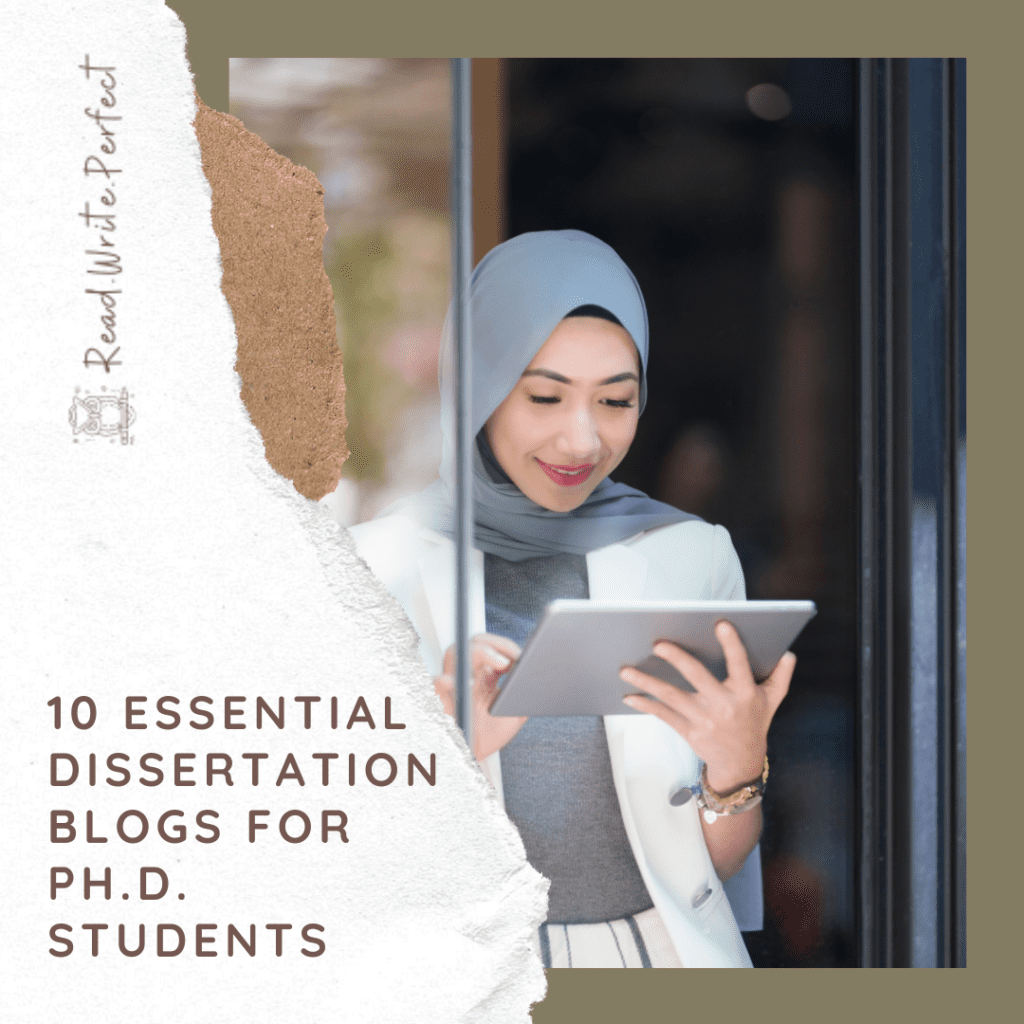
If you are anything like me, then having a few blogs and podcasts to follow is essential to every project – and dissertation blogs are no exception.
In this post, I’ll share ten of my favorite research blogs for dissertation students, including academic, writing, and humorous options. (Don’t worry – we’ll get to podcasts another day!)
Dissertation blogs are great, because you can get everything from instructional tips on research and writing to motivational daydreaming and validation for your frustrations. I think these ten blogs offer a good range of what you need to survive the dissertation research and writing process – but let me know what you think!
(And yes – the ReadWritePerfect Dissertation Advice blog also offers these things – but it’s nice to have options, right?)
The Thesis Whisperer
This blog offers ten years of humorous and supportive content from professor inger mewburn..
Director of Researcher Development at The Australian National University, Professor Mewburn writes The Thesis Whisperer with candor, humor, and more than a little bit of inside knowledge. her tips on writing, surviving the dissertation process, and staying motivated are user-friendly and filled with empathy.
Nick Hopwood
Associate professor at the university of technology, sydney, hopwood shares insight on research, academic work, writing, and more..
More formal and authoritative than the Thesis Whisperer, Nick Hopwood is a site for readers who prefer an all-business approach to academia. As well as the blogs, readers can find podcasts and instructional videos on the site.
Get a life, PhD
Although the last post was in 2021, this dissertation blog offers years of blogs on everything from how to find a life-work balance to general tips on academic writing..
Get A Life, PhD is all about finding the balance between letting your PhD fall to the wayside and letting your PhD consume you, mind, body, and soul. I especially love the practical, realistic tips on time management.
Research to Action
This collaborative site offers a synthesis of instructive blogging, online community, and academic debate, all focused on improving research strategies..
The Research to Action site is a pretty comprehensive one-stop-shop for researchers at all levels, from PhD candidate to seasoned researcher. The site itself is well-designed, as as well as instruction, readers can find reading lists, calls for submissions, and even job opportunities.
The Professor Is In
This dissertation blog offers guidance and resources for graduate students and academics from a range of contributors..
Slightly more commercial than some of the other blogs listed here, the key strength of The Professor is In lies in the range of contributors lending their voices and expertise to the content, from a productivity coach to a graduate director to an editor to several professors and assistant professors. Between them, they know everything there is to know about thriving in academia.
The Research Whisperer
This research blog is similar to the thesis whisperer, but more recent and more funding-focused..
The bloggers at The Research Whisperer address topics related to all aspects of academic research. While they “don’t just talk about funding,” there is a real emphasis in the content on the business side of research (such as getting grants and being a union member), as their tag line suggests: “Just like the Thesis Whisperer – but with more money.”
From PhD to Life
This dissertation blog covers topics that help phd students prepare for and transition into life after academia..
Even if you’re not quite ph(inishe)d yet, From PhD to Life will definitely give you something to look forward to – and tips to help you plan practically for it. I particularly like the light, conversational style – it’s a nice break from academia-speak.
Writing for Research
In this research blog, professor patrick dunleavy writes about academia, offering some higher-level insight into the processes and culture of higher education institutions..
Writing for Research does offer some basic writing and research advice, but what really helps it stand out from other sites is the focus on how academia ticks. There are posts on everything from university organization (why exactly is an academic discipline called a “discipline”?) to open-access and fair reviewing practices – really interesting stuff, in other words.
Tress Academic
Aimed at beginners and dedicated to simplifying things and getting you through the job, this site provides various resources for researchers and phd students..
Not every dissertation student is interested in a lifetime devotes to academia – some just want to get on and get done. Tress Academic offers easy-to-digest advice posts broken down into manageable steps, as well as useful worksheets, checklists, and free training videos. Again, this one has a commercial feel, but it’s still got a wealth of useful material if you need to get the job done quickly.
Supervising PhDs
This is a community research blog from various professors and academics. topics cover doctoral supervision relationships and pedagogies..
Admittedly, a lot of the really useful stuff on Supervising PhDs is aimed at professors and supervisors. However, there’s nothing to say you can’t gift some of the useful checklists, guides, and articles to your supervisor the next time they’re being particularly frustrating…
Need More Help?
Dissertation blogs and forums not your thing? Instead of relying on online communities, get personable and personalized help with dissertation coaching services .
Related Articles
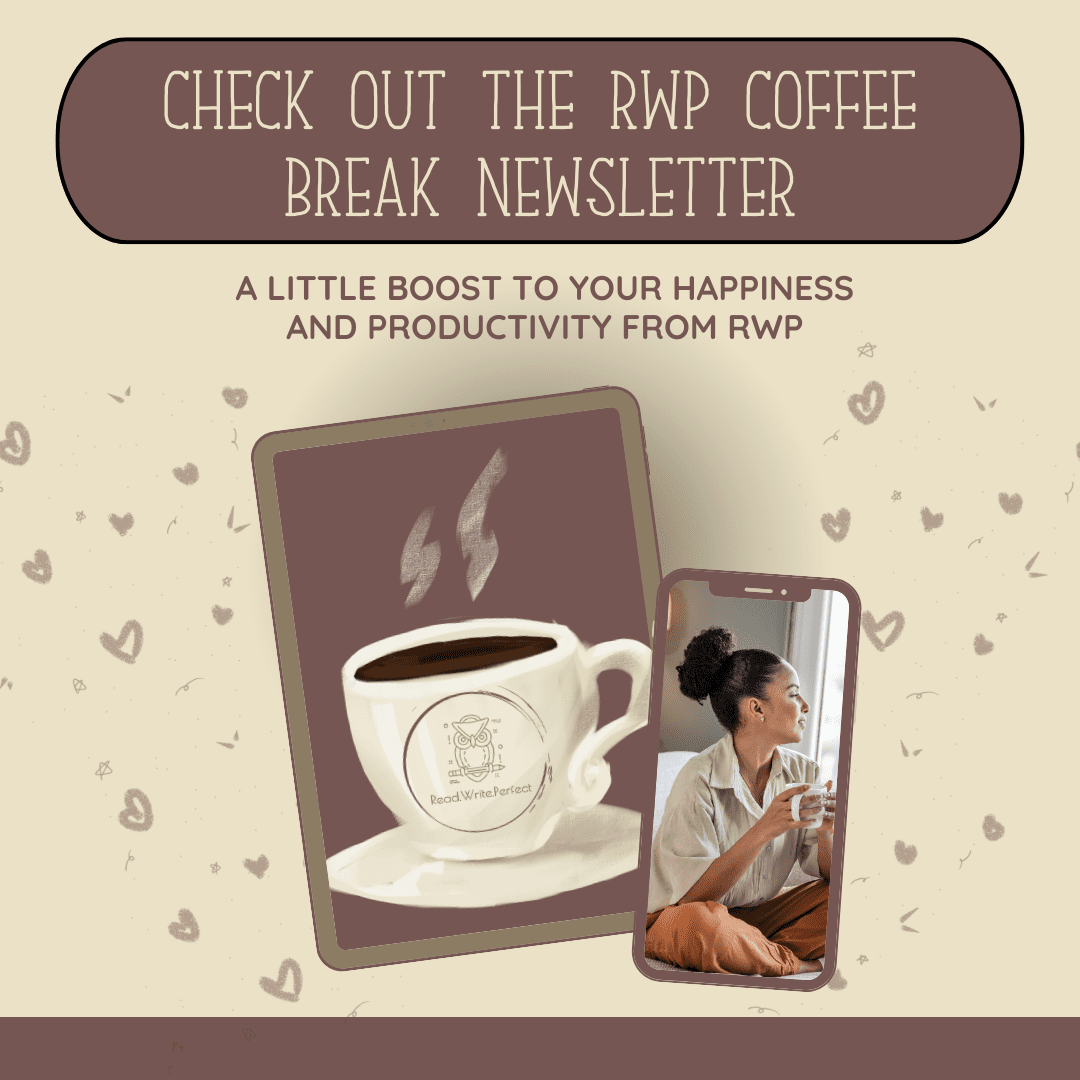
Welcome! I’m glad you found the Thesis Whisperer.

To get regular posts and newsletters by email, click the ‘sign me up! button on the right side bar. The best social channel to talk to me directly is Mastodon : open this webpage to find and follow me: aus.social/@thesiswhisperer. This blog is maintained with my own time and money and is run on a ‘not for loss’ model. If you love the Thesis Whisperer and want to help me continue, there are a number of ways you can support my work: read more here.
You can contact me about the blog or workshops via the email listed on my ANU page here , but please understand I may not respond immediately as I receive high volumes of mail.
This blog is 13 years old now. It has well over half a million words of content and more than 100,000 followers over multiple social media channels. The blog has been visited over 10 million times over the last decade and people have left well over 16 thousand comments. It has a truly global reach, with readers located all over the world. See the end of this page for my more academic work on the subject of research education.
Please feel free to explore using the search box. I’ve tried to make it easier for you by curating the most popular posts on the Browse page and have compiled blog content into several books which are available through regular channels like Amazon and Book Depository (just google my name there).
I also do podcasts! On the Reg is a monthly podcast I do with my friend Dr Jason Downs. On The Reg is about life, work and being ‘productive’ – but only on your own terms. you can listen and subscribe here.
It costs me around $1500 a year to run the blog and the podcasts. If you want to support me to keep the Thesis Whisperer going, you can buy me a virtual coffee or purchase an ebook here .
Who is the Thesis Whisperer?

Since 2006 I have worked exclusively with PhD students and early career academics. I help people finish complex research projects with (sometimes very) demanding stakeholders. I’m passionate about helping people reach their potential as researchers and helping to create a kinder, more inclusive academy. I strive to create spaces where people can do their best work and advance human knowledge for the good of all.
I am currently the Director of Researcher Development at The Australian National University where I run and curate professional development workshops and programs for all ANU researchers. Aside from creating the Thesis Whisperer, I write scholarly papers, books and book chapters about research student experiences, with a special interest in post PhD employability.
I am a regular guest speaker at other universities and do media interviews on request. I am available for keynotes and interviews: please email me on [email protected]. I do workshops on post PhD employability, publishing, writing, social media, communication and academic survival skills at other universities, for a fee. If you are interested in having me visit your university, see the Workshops page . I am the co-creator of an app to help PhD graduates find non academic jobs. You can find out more about this work on the PostAc page.
As ANU does not have an education department, I have very limited ability to take on students (please read My Research page for more information).
For further information on my work, a selection from my resume is below. You can view my Linkedin profile , my Amazon author page , or contact me by email via the online form above. For more details on my scholarly work please visit my Google Scholar page or my OrcidID . If you need a high res photo of me, you can download from a collection here . A curated selection of my academic CV appears below.
I no longer publish guest posts
For nearly a decade, from mid 2010, The Thesis Whisperer was run on a community content model with weekly posts by me, interspersed with posts by current PhD students and others. I no longer publish guest posts. For more information, please read this post .
The fine print
I am an active, professional researcher working full time at The Australian National University. I do not do paid endorsements on this site, so please don’t write to me with requests to advertise here or supply guest posts about your products. I do accept books to review; you can email me about your book using the address above.
I am an Amazon affiliate, but I only recommend products and people that I think are awesome. Please read the moderation policy page for more information and my recommendations page for book and software recommendations. Visit the resources page for my recommendations on quality, ethical support services like editors and coaches.
I have a strong ethical objection to ‘write your dissertation’ service providers and will not support their work in any way – please don’t email asking me if you can do content marketing on the site, I will just delete your message.
You are free to reproduce any posts from the Whisperer through this Creative Commons license . If you want to share or use Thesiswhisperer material, please respect the non-commercial and share alike terms of the license. For commercial re-use of my content, contact me directly. Photos on this site are either owned by me, given with consent, copyright free and/or sourced from Morguefile or Unsplash .
My academic self:
Qualifications
- Constructing Bodies: gesture speech and representation at work in Architecture classrooms , Ph.D, University of Melbourne, (2009). Winner of the John Grice award for best thesis in the Faculty of Architecture, Building and Planning.
- “Digital architectures and the presence of the virtual”, MPhil RMIT University, (2005).
- Post-graduate certificate in Spatial Information Architecture, RMIT University (2001).
- Certificate IV in training and assessment, RMIT University (1999).
- Bachelor of Architecture (with Honours), RMIT University (Awarded 1997).
Academic Books
- Mewburn, I & Clews, S (2023 – pre-orders available) – Be visible or vanish: engage, influence and ensure your work has impact , Routledge.
- Mewburn, I., Lehmann, S. Firth, K (2019) Level up your essays , New South Press.
- Mewburn, I., Lehmann, S. Firth, K (2019) How to fix your academic writing trouble , Open University Press, Maidenhead.
- Mewburn, I (2017) How to be an academic , New South Press, Sydney
- Lupton, D, Mewburn, I and Thomson, P (2017 ) The Digital Academic: critical perspectives on digital technologies in higher education , Routledge, London.
- McMaster, C, Whitburn, B, Mewburn, I and Murphy, C (2017) Postgraduate study in Australia: surviving and succeeding , Peter Lang, Amsterdam.
Book Chapters
- Freund, K., Kizimchuk, S., Zapasnik, J., Esteves, K. and I.Mewburn (2017) A Labour of Love? A Critical Examination of the ‘Labour Icebergs’ of Massive Open Online Course in Lutpon, D., Thomson, P. and Mewburn, I. (eds) The Digital Academic: critical perspectives on digital technologies in higher education , Routledge, London.
- Mewburn, I. & Thomson, P. (2017) Towards an academic self? Blogging during the doctorate, in Lutpon, D., Thomson, P. and Mewburn, I. (eds) The Digital Academic: critical perspectives on digital technologies in higher education , Routledge, London.
- Mewburn, I. & Thomson, P. (2016) Social media and academic publishing, in Selwyn, N (ed), The BERA/SAGE Handbook of Educational Research, Sage, London.
- Corbett, J., Macintyre, A. & Mewburn, I. (2014), Functional Dystopia: Diversity, Contestability and New Media in the Academy , in Margaret Thornton (ed.), Through a Glass Darkly: The Social Sciences Look at the Neoliberal University , ANU Press, Canberra, pp. 195-208.
- Mewburn, I. (2012) Creative doctoral work, in Carey Denholm and Terry Evans (ed.), Doctorates down-under: keys to successful doctoral study in Australia and Aotearoa , New Zealand (2nd ed), Australian Council for Educational Research Press, Melbourne Australia, pp. 126-135.
- Mewburn, I., Osborne, L. & Caldwell, G. 2014, ‘Shut up & Write! Some surprising uses of cafes and crowds in doctoral writing’, in Claire Aitchison and Cally Guerin (ed.), Writing Groups for Doctoral Education and Beyond: Innovations in practice and theory , Routledge, Taylor & Francis Group, Abingdon and New York, pp. 218-232.
- Mewburn, I. and Barnacle, R. (2010) Razzle Dazzle: making a thesis text in creative practice based research, in Joy Higgs et al (eds) Researching Practice: a discourse on methodologies . Rotterdam, Holland: Sense Publishers.
- Mewburn, I (2008) Through the looking glass and into the design studio, in Pia Ednie-Brown (ed.) Plastic Green: designing for environmental transformation , RMIT Press, Melbourne Australia.
- Ednie-Brown, P. and Mewburn, I. (2006) Vibrating with Difference: Laughter and the intimate distance between us , in Jillian Hamilton (Ed.), Intimate Transactions: Art, Exhibition and Interaction Within Distributed Network Environments , ACID Press, Brisbane.
Journal papers
- Spina, Nerida, et al. “Back to Zero? Precarious employment in academia amongst ‘older’early career researchers, a life-course approach.” British Journal of Sociology of Education (2022).
Barnett, A, Mewburn I and Shroter, S (2019) Working 9 to 5, not the way to make an academic living: observational analysis of manuscript and peer review submissions over time in the BMJ Christmas edition, 2019. There is also an article about the paper in the New York Times .
- Book Review – Academics writing: the dynamics of knowledge production in the Journal of Post Digital Science and education, 2019.
- Mewburn, I., Grant, W., Suominen, H. & Kizimchuk, S. (2018) A machine learning analysis of the non- academic employment opportunities for Ph.D Graduates in Australia , Higher Education Policy,
- Mewburn, I. (2017) A PhD shouldn’t look like it’s fun: an actor-network theory analysis of digital badges , Student engagement in Higher education, 1(2), 40-54.
- Trembath, J. & Mewburn, I. (2017) The role of technology in the making of a Thesis Whisperer , The Unfamiliar, 7(1), 14 – 26.
- Pitt, R. & Mewburn, I. (2016) Academic superheroes? A critical analysis of academic job descriptions , Journal of Higher Education Policy and Management , 38(1), 88 – 101.
- Amayo Caldwell, G., Osborne, L., Nottingham, A. & Mewburn, I. (2015) Connecting the Space between Design and Research: Explorations in participatory research supervision , Education Philosophy and Theory, 48(13), 1352 – 1367.
- Amayo Caldwell, G., Osborne, L., Mewburn, I. & Crowther, P. (2015) Guerrillas in the (Urban) midst: developing and using creative research methods and ‘guerrilla research tactics’ , Journal of Urban Technology, 22 (3), 21 –
- Mewburn, I. & Thompson, P. (2013) Why do academics blog? An analysis of audiences, purposes and challenges , Studies in Higher Education, 38(8) , 1105 – 1119.
- Mewburn, I., Tokareva, E. & Cuthbert, D. (2014) “These are issues that should not be raised in black and white”: the culture of progress reporting and the doctorate , Higher Education Research and Development, 33(3), 510-522.
- Mewburn, I., Cuthbert, D. & Tokareva, E. (2014) Experiencing the progress report: an analysis of gender and administration in doctoral candidature , Journal of Higher Education Policy and Management, 36 (2), 155-171.
- Mewburn, I. (2011) Troubling talk: assembling the PhD candidate , Studies in Continuing Education, 33(3), 321-332.
- Mewburn, I. (2011), Lost in translation: Reconsidering reflective practice and design studio pedagogy , Arts and Humanities in Higher Education, 11 (4 ), 363-379.
- Barnacle, R. & Mewburn, I. (2010) Learning networks and the journey of ‘becoming doctor’ , Studies in Higher Education , 35 (4), 433-444.
Awards, grants and prizes
- Special commendation for leadership, Australian Council of Graduate Research, 2020.
- Admitted as Vitae Senior Research Developer Fellow, 2019
- Vice Chancellor’s award for innovation and excellence in service, November 2017.
- CSIRO ‘On Prime’ commercialisation program prize, 2017 and 2018
- Leader: $150 in Discovery Translation Funds from Canberra Innovation Network, 2017 – 2020 to develop PostAc
- Leader: Department of Industry research grant to investigate the application of machine learning to explore PhD employability and the ‘hidden job market’ for graduates, 2015 – 2016. $80,000
- Leader: ARUP engineering research grant to explore the integration of digital badges in engineering contexts, 2014 ($6000)
- Leader: Office of Learning and Teaching seed grant to explore the use of digital badge technology in doctoral pedagogy, 2014 ($40,000)
- Best concise paper, “Badge trouble: implementing digital badges at the Australian National University, ASCILITE conference, Wellington, 2014.
- Leader: ANU gender institute grant to explore PhD student attrition, 2013 ($1500)
- John Grice award for best thesis in the Faculty of Architecture, Building and Planning, University of Melbourne, 2009. ($3000)
- Best paper award, Faculty of Architecture, Building and Planning, University of Melbourne, 2008 ($3000)
- Melbourne research scholarship, University of Melbourne, 2006-2008. ($24,000 PA)
- Creative research industries CRC award for creative explorations, 2003. ($3000)
Commissioned reports
- Mewburn, I, Grant, W and Souminen, H (2016) Tracking Trends in industry demand for Australia’s advanced research workforce , Department of Industry, Canberra, Australia.
- Mewburn, I and Trembath, J.L (2015) The culture of sharing at Arup: A report on the use of internal social software systems , Arup Engineering, Sydney, Australia.
Peer reviewed conference papers
- Mewburn, I., Freund, K. & Rutherford, E. (2014) Badge trouble: piloting open badges at the Australian National University , Rhetoric and Reality: Critical perspectives on educational technology , ed. B Hegarty, J McDonald, SK Loke, ASCILITE: Australasian Society for Computers in Learning in Tertiary Education, Dunedin New Zealand, pp. 643-648.
- Kizimchuk, S, Freund, K, Prescott, M et al 2016, ‘Collective effervescence: Designing MOOCs for emotion and community’, 33rd International Conference of Innovation, Practice and Research in the Use of Educational Technologies in Tertiary Education, ASCILITE Adelaide 2016, ed. S. Barker, S. Dawson, A. Pardo, and C. Colvin, University of South Australia, Australia, pp. 348-353.
- Maher, A. and Mewburn, I. 2007, ‘An economy of knowledge: research, architectural practice and knowledge (in) translation’ , in Ethnographic Praxis in Industry Conference Proceedings , United States, 3 – 6 October 2007, pp. 258-269.
Selected expert Commentary
- Mewburn, I. and Thomson, P. (12/12/2013) ‘ Academic blogging is part of a complex online academic attention economy, leading to unprecedented readership’. London School of Economics Impact blog
- Mewburn, I. and Thomson, P. (3/12/2013) ‘Why do academics blog? It’s not for public outreach new research suggests’ , The Guardian
- Mewburn, I (27/09/2012) ‘Academics behaving badly: Universities and online reputations’ , The Conversation
- Mewburn, I (14/06/2015) ‘ What’s up with Universities? Wackademia or just grumpy old academics ?’, The Conversation, 14/06/2012. Retrieved 19/07/2015 from https://theconversation.com/whats-up-with-universities-whackademia-or-just-grumpy-old-academics-7602
- Mewburn, I (11/06/2012). ‘On the right side of the digital divide’ , New Scientist. Retrieved 17/07/2015
Share this:
The Thesis Whisperer is written by Professor Inger Mewburn, director of researcher development at The Australian National University . New posts on the first Wednesday of the month. Subscribe by email below. Visit the About page to find out more about me, my podcasts and books. I'm on most social media platforms as @thesiswhisperer. The best places to talk to me are LinkedIn , Mastodon and Threads.
- Post (607)
- Page (16)
- Product (6)
- Getting things done (259)
- Miscellany (138)
- On Writing (138)
- Your Career (113)
- You and your supervisor (66)
- Writing (48)
- productivity (23)
- consulting (13)
- TWC (13)
- supervision (12)
- 2024 (6)
- 2023 (12)
- 2022 (11)
- 2021 (15)
- 2020 (22)
Whisper to me....
Enter your email address to get posts by email.
Email Address
Sign me up!
- On the reg: a podcast with @jasondowns
- Thesis Whisperer on Facebook
- Thesis Whisperer on Instagram
- Thesis Whisperer on Soundcloud
- Thesis Whisperer on Youtube
- Thesiswhisperer on Mastodon
- Thesiswhisperer page on LinkedIn
- Thesiswhisperer Podcast
- 12,160,043 hits
- BLOGGERS DATABASE
- SUBMIT YOUR BLOG
News Reader
Brand Monitoring
Blogger Outreach or Influencer Marketing
Combined Newsletters
Embeddable RSS Widgets
RSS Combiner beta
Select Page
- Get 150k Bloggers with email contacts. Export Full Database
- Request Bloggers Contacts
- Export Contact List
50 Best Thesis Writing Blogs and Websites To Follow in 2024 (Dissertation Blogs)
- PhDiZone | Phd Guidance, Assistance, Thesis Dissertation Research Paper Writing
- The Thesis Whisperer
- The Dissertation Coach
- The Research Whisperer
- Scholars Professional Editing Group LLC
- The Dutch PhD coach Blog
- Medium » Thesis
- My Manchester News » Thesis
- Home of Dissertations Blog
- PhD Assistance Blog
- Oxbridge Essays » Dissertation Writing
- The Dissertation Writers
- SAERA » Master's Thesis
- PHD Writing Assistance Blog
- MyThesis Academy Blog
- Grad Coach » Dissertation & Thesis Writing 101
- Dissertation By Design
- Doctoral Writing SIG
- Thesis Helpers
- Finish Your Thesis Blog
- Imperial College London - Student blogs » Thesis
- Tutors India | Top Quality Dissertation, Thesis writing Services, PhD MBA
- APAGS - gradPSYCH » Dissertation
- Raul Pacheco-Vega, PhD » Dissertation
- patter » Thesis
- My Assignment Help Au Blog
- The Academic Papers UK » Dissertations
- DissertationAuthors.com
- DissertationOwl.com Blog
Thesis Writing Bloggers
- Thesis Writing Newsletter
Thesis Writing Blogs
Here are 50 Best Thesis Writing Blogs you should follow in 2024
1. PhDiZone | Phd Guidance, Assistance, Thesis Dissertation Research Paper Writing
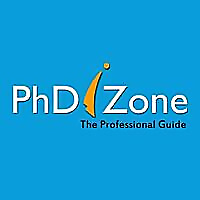
2. The Thesis Whisperer

3. Thesislink

4. The Dissertation Coach

5. The Research Whisperer


6. Scholars Professional Editing Group LLC

7. The Dutch PhD coach Blog

8. Medium » Thesis

9. My Manchester News » Thesis

10. Home of Dissertations Blog

11. PhD Assistance Blog

12. Oxbridge Essays » Dissertation Writing
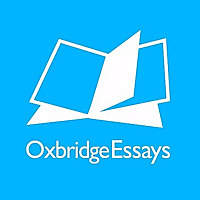
13. The Dissertation Writers

14. SAERA » Master's Thesis

15. PHD Writing Assistance Blog
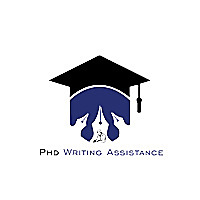
16. MyThesis Academy Blog

17. Grad Coach » Dissertation & Thesis Writing 101

18. Dissertation By Design

19. Doctoral Writing SIG

20. Thesis Helpers

21. Finish Your Thesis Blog

22. Imperial College London - Student blogs » Thesis

23. Tutors India | Top Quality Dissertation, Thesis writing Services, PhD MBA

24. APAGS - gradPSYCH » Dissertation

25. Raul Pacheco-Vega, PhD » Dissertation

26. patter » Thesis

27. My Assignment Help Au Blog

28. The Academic Papers UK » Dissertations

29. DissertationAuthors.com

30. DissertationOwl.com Blog

| Author Name | Designation | Media Outlet | |
|---|---|---|---|
| Irene | Contributor | saera.eu | |
| Alison Miller | Contributor | thedissertationcoach.com | |
| Louter Promoveren | Contributor | thedutchphdcoach.com | |
| Scott Pilkington | Contributor | aut.ac.nz | |
| Phdizone | Contributor | phdizone.com | |
| Dr. Cara | Contributor | dissertationcompletecoaching.com | |
| Graduate Research School (auckland University Of T | Contributor | aut.ac.nz | |
| Dora Farkas | Contributor | finishyourthesis.com | |
| Phd | Contributor | finishyourthesis.com | |
| Anaise Irvine | Contributor | aut.ac.nz | |
| The Dissertation Coach | Contributor | thedissertationcoach.com | |
| Research Whisperer | Contributor | researchwhisperer.org | |
| Jonathan O'donnell | Contributor | researchwhisperer.org | |
| Arjenne Louter | Contributor | thedutchphdcoach.com | |
| Phd Assistance | Contributor | phdassistance.com | |
| Dissertation Genius | Contributor | dissertationgenius.com | |
| Phdblog | Contributor | phdwritingassistance.com | |
| Derek Jansen | Contributor | gradcoach.com | |
| Jessica Parker | Contributor | dissertationbydesign.com | |
| Edd | Contributor | dissertationbydesign.com | |
| Kirstie Eastwood | Contributor | dissertationbydesign.com | |
| Tutors India | Contributor | tutorsindia.com | |
| Student News Team | Contributor | manchester.ac.uk | |
| Pat Thomson | Contributor | patthomson.net | |
| Sumit | Contributor | buycollegeessay.org | |
| Ananda | Contributor | phdthesiswriters.com | |
| Dr. Carter-veale | Contributor | phd-completion.com | |
| Kirstie Eastwood | Contributor | thedissertationcoach.com | |
| M.sc | Contributor | thedissertationcoach.com | |
| Climate Change Researchers' Group | Contributor | aut.ac.nz | |
| Shobhit Malik | Contributor | phdthesiswriters.com | |
| Kapila | Contributor | phdthesiswriters.com | |
| Varun | Contributor | phdthesiswriters.com |
Media Contact Database
Why list and promote your blog on feedspot.
While Sandel argues that pursuing perfection through genetic engineering would decrease our sense of humility, he claims that the sense of solidarity we would lose is also important.
This thesis summarizes several points in Sandel’s argument, but it does not make a claim about how we should understand his argument. A reader who read Sandel’s argument would not also need to read an essay based on this descriptive thesis.
Broad thesis (arguable, but difficult to support with evidence)
Michael Sandel’s arguments about genetic engineering do not take into consideration all the relevant issues.
This is an arguable claim because it would be possible to argue against it by saying that Michael Sandel’s arguments do take all of the relevant issues into consideration. But the claim is too broad. Because the thesis does not specify which “issues” it is focused on—or why it matters if they are considered—readers won’t know what the rest of the essay will argue, and the writer won’t know what to focus on. If there is a particular issue that Sandel does not address, then a more specific version of the thesis would include that issue—hand an explanation of why it is important.
Arguable thesis with analytical claim
While Sandel argues persuasively that our instinct to “remake” (54) ourselves into something ever more perfect is a problem, his belief that we can always draw a line between what is medically necessary and what makes us simply “better than well” (51) is less convincing.
This is an arguable analytical claim. To argue for this claim, the essay writer will need to show how evidence from the article itself points to this interpretation. It’s also a reasonable scope for a thesis because it can be supported with evidence available in the text and is neither too broad nor too narrow.
Arguable thesis with normative claim
Given Sandel’s argument against genetic enhancement, we should not allow parents to decide on using Human Growth Hormone for their children.
This thesis tells us what we should do about a particular issue discussed in Sandel’s article, but it does not tell us how we should understand Sandel’s argument.
Questions to ask about your thesis
- Is the thesis truly arguable? Does it speak to a genuine dilemma in the source, or would most readers automatically agree with it?
- Is the thesis too obvious? Again, would most or all readers agree with it without needing to see your argument?
- Is the thesis complex enough to require a whole essay's worth of argument?
- Is the thesis supportable with evidence from the text rather than with generalizations or outside research?
- Would anyone want to read a paper in which this thesis was developed? That is, can you explain what this paper is adding to our understanding of a problem, question, or topic?
- picture_as_pdf Thesis

IMAGES
VIDEO
COMMENTS
The Thesis Whisperer is now over 10 years old! An older blog is a big, confusing attic full of content. On this page you’ll find a selection of low cost books created from the blog content – and a few other surprises. All sales help me sustain the blog. Take a look!
If you are anything like me, then having a few blogs and podcasts to follow is essential to every project – and dissertation blogs are no exception. In this post, I’ll share ten of my favorite research blogs for dissertation students, including academic, writing, and humorous options.
Similar to another academic blog, The Thesis Whisperer, it consists of blog posts by a number of contributors, all of which broadly focus on “doing research in academia.” More specifically, the posts cover topics such as finding funding, research culture, and building academic track-records.
The Thesis Whisperer blog is dedicated to the topic of doing a PhD and being an academic in the neo-liberal precarious academy that we (kinda) love. It is managed and edited by me, Professor Inger Mewburn, Director of Researcher Development at the Australian National University.
A good thesis has two parts. It should tell what you plan to argue, and it should "telegraph" how you plan to argue—that is, what particular support for your claim is going where in your essay. Steps in Constructing a Thesis. First, analyze your primary sources. Look for tension, interest, ambiguity, controversy, and/or complication.
The best Thesis Writing blogs from thousands of blogs on the web and ranked by relevancy, authority, social media followers & freshness.
A thesis statement is a sentence in a paper or essay (in the opening paragraph) that introduces the main topic to the reader. As one of the first things your reader sees, your thesis statement is one of the most important sentences in your entire paper—but also one of the hardest to write!
Your thesis is the central claim in your essay—your main insight or idea about your source or topic. Your thesis should appear early in an academic essay, followed by a logically constructed argument that supports this central claim.